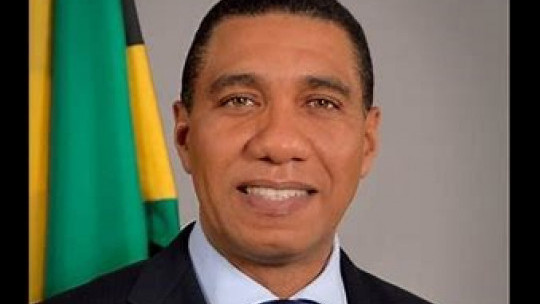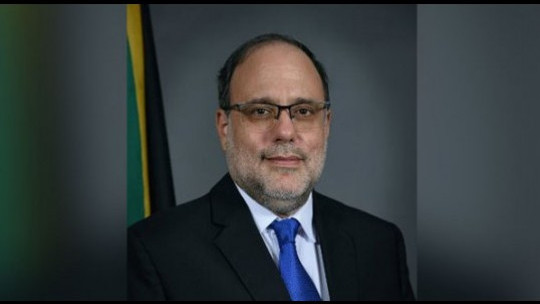.png)
Political scientist Damian Gordon has concluded that neither of Jamaica's two main political party leaders should take comfort in the latest poll findings, which show JLP Leader Andrew Holness, holding a 7.5 per cent favourability lead over Opposition Leader Mark Golding.
According to the latest Don Anderson poll, commissioned by the RJRGLEANER Group, Prime Minister Andrew Holness, Leader of the governing Jamaica Labour Party had a favourable rating of 37.7% at the time of the poll in May-June while Mark Golding, Leader of the Opposition and President of the People’s National Party, had a favourability rating of 30.1%.
Those figures do not tell the complete story, however, as with 30.4% of respondents having an unfavourable view of Dr Holness, in contrast to 22.7% having a similar view of Mr Golding, the two men are virtually tied for net favourability rating, with Dr Holness at +7.2% and Mr Golding +7.4.
While noting that the results are not surprising, Mr. Gordon says they must be interpreted within the context of how politics is structured in Jamaica.
"We have to recognise that, within the context of our politics, an opposition party and its leader tend to be marginalised; they are constrained by their lack of access to resources and the power to get things done in a visible way," he argued, noting in contrast, that "the Prime Minister, who has been Prime Minister for two terms now has name and face recognition, so he's doing better where branding is concerned, but he also has the ability to get things done in a tangible way."
Below is the full breakdown and analysis of the results, given by Don Anderson:
“The comparison of the favourability of the leaders of the respective parties over three polls between April 2024 and May 2025 shows an interesting pattern. Holness records the highest favourabilty rating across the three polls, with 40% in April 2024. Golding’s highest positive ratings is also in the April 2024 poll, with 37%. Holness then had a 3% points lead over Golding in leader favourability.
“Holness’ rating dipped in the June 2024 poll to 34.6% and there was a similar fall off in Golding’s rating down to 35.8%, but this fall off in both led to Golding being considered marginally more favourable than Holness, this for the first time. That lead was 1.2%
“In the recently reported May 2025, Holness’ rating increased by 3% points to 37.6, whilst Golding’s fell by 5.7% points to 30.1 so again Holness is now the better favoured leader with an advantage of 7.3% over Golding.
“When the unfavourability measure is included in the analysis , a slightly different picture is painted of the comparison of the leaders. For April 2024, Holness records a net positive (favourable minus unfavourable) of +9%, compared to Golding’s net positive (favpurable minus unfavourable) of +19%, which means that Golding’s unfavourability rating was much lower than Holness’.
“For June 2024, the net positive ratings were Holness -1.9, compared to Golding’s +9, whilst for the current May 2025 poll, Holness’ net positive moved back into a plus of 7.2%, but this is also lower than the net positive of Golding which is +7.4.
“These data show two things, one that for each of the three periods evaluated, Holness recorded a higher unfavourability rating than Golding peaking at 36.5% in June 2024, and secondly, that Golding records in all three a significantly higher No opinion rating, meaning persons were unable to rate him on this measure of favourability.
“In the final analysis, Holness currently enjoys a higher favourability rating than Golding, that advantage being 7.5% points.”
Mr. Gordon, speaking Sunday on Radio Jamaica’s That’s a Rap, opined that a leader's favourability rating does not necessarily translate into voter intention.
The latest Don Anderson polls were conducted during the period May 16 through June 7.The polling team interviewed 1,033 people.



.jpg)
.jpg)






 All feeds
All feeds







